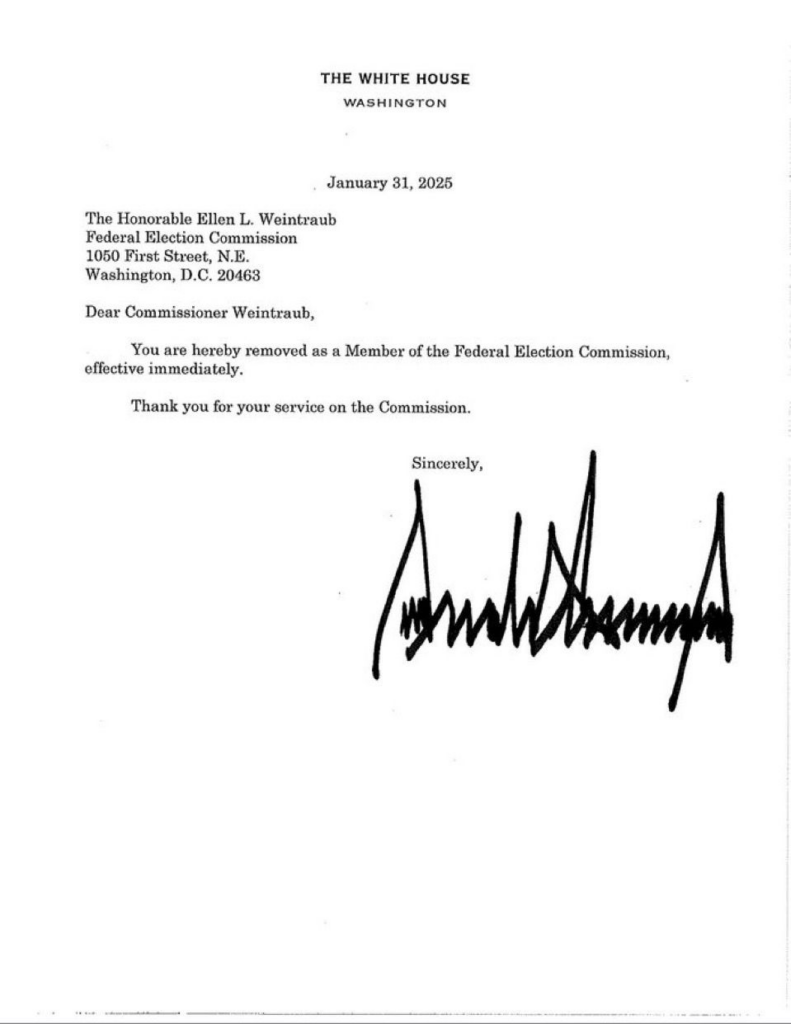A Necessary Move for Accountability
Former President Donald Trump’s decision to remove long-serving Federal Election Commission (FEC) Commissioner Ellen Weintraub marks a bold step toward reforming the nation’s election oversight. Supporters argue that Weintraub, who was appointed in 2002 by President George W. Bush, had overstayed her tenure and contributed to partisan gridlock within the agency. By replacing long-serving officials, Trump aimed to revitalize the commission, ensuring it functions effectively and in alignment with the evolving electoral landscape.

Restoring Balance at the FEC
The FEC is a six-member bipartisan commission responsible for enforcing federal campaign finance laws. However, the agency has often been criticized for dysfunction and partisan conflicts. Critics of Weintraub argue that she used her position to advance a political agenda rather than enforce election laws impartially. Trump’s move to replace her aligns with efforts to restore balance within the commission, ensuring that all political perspectives are fairly represented.
Long Overdue Leadership Change
Weintraub remained in office for more than 15 years after her six-year term expired, taking advantage of a loophole that allows commissioners to stay in place until a successor is confirmed. This led to accusations that she was part of an entrenched bureaucracy resistant to change. Trump’s decision reflects a broader effort to modernize government institutions by bringing in fresh leadership that aligns with the will of voters.
Strengthening Election Integrity
One of the primary reasons for Trump’s decision is to address concerns about election integrity. Weintraub was a vocal critic of Trump’s claims regarding election fraud, which led many to question her impartiality. By appointing new leadership, Trump sought to ensure the FEC remained focused on enforcing election laws rather than engaging in political debates.

Empowering the Executive Branch
Presidents are elected to lead the nation and implement policies that reflect their vision for governance. Trump’s decision underscores the importance of executive authority in shaping regulatory agencies to ensure they serve the American people effectively. While some argue that FEC commissioners should be shielded from political influence, others believe elected leaders must have the ability to replace officials who are not in sync with their administration’s goals.
The Road Ahead
Legal challenges are expected to follow Weintraub’s removal, but the move highlights the need for structural reforms at the FEC. Many Republicans and election integrity advocates see this as an opportunity to rebuild trust in the electoral system and make the agency more efficient.
By pushing for leadership changes, Trump demonstrated his commitment to ensuring that the nation’s election oversight mechanisms function fairly and effectively. Whether or not courts uphold the decision, his action has sparked an important conversation about the role of long-term bureaucrats in shaping election policy and the need for greater accountability in federal agencies.



